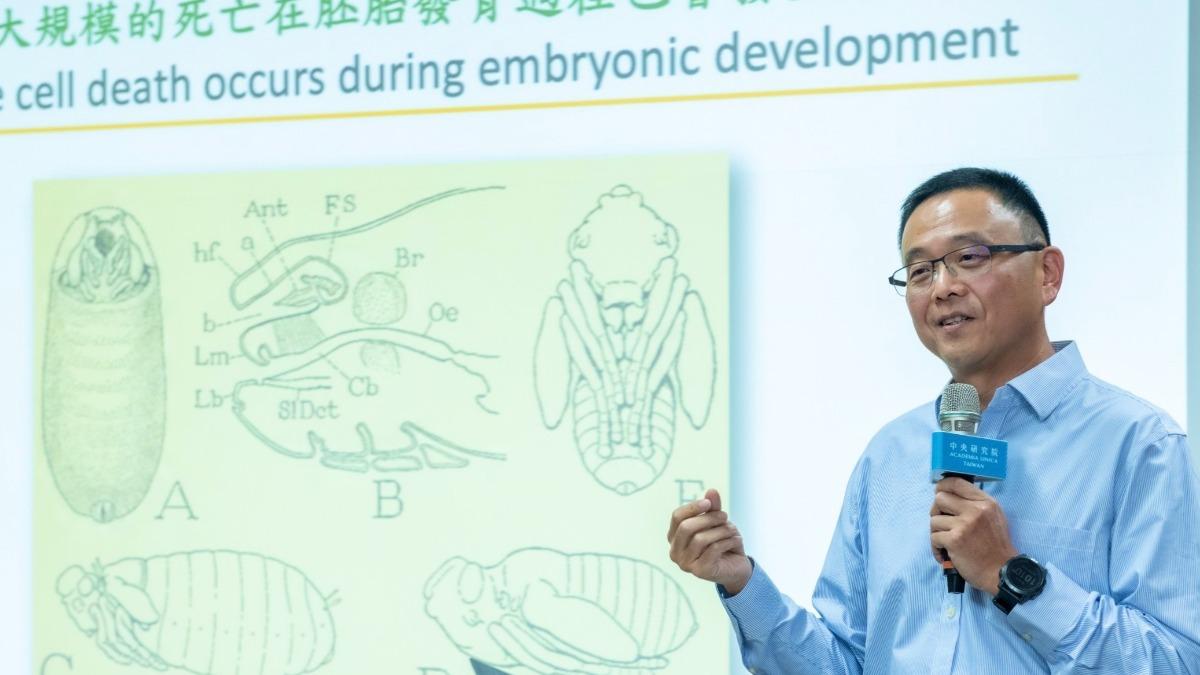TAIPEI (TVBS News) — The Academia Sinica announced on Thursday (July 18) a groundbreaking research on ferroptosis trigger waves, a discovery by Dr. Sheng-hong Chen and his team from the Institute of Molecular Biology's Lab for Cell Dynamics. The study, published online in Nature in July 2024, identified Reactive Oxygen Species (ROS)-mediated ferroptosis trigger waves as a crucial mechanism in large-scale cell death during embryonic development.
Academia Sinica Vice President Tang K. Tang emphasized the integration of biological and mathematical methods by the team, employing innovative biological and mathematical approaches to solve this century-old mystery. Unlike conventional apoptosis and necrosis, ferroptosis is a recently discovered form of cell death. Chen's team demonstrated the pivotal role of ROS feedback loops in driving ferroptosis trigger waves.
"Unlike localized effects that only influence a few neighboring cells, the ROS-mediated ferroptotic trigger waves can lead to the death of millions of cells," Chen stated. The mechanism involves recurrent activation of cellular redox switches through diffusive ROS signals, cascading like dominoes from one cell to the next, as revealed through 24-hour time-lapse imaging and quantitative image analysis.
Hannah Katrina C. Co, an international Ph.D. student, and Dr. Chia-Chou Wu, a postdoctoral research fellow, are the first authors of the study. Co described the propagation of ferroptotic cell death via self-regenerating ROS wave fronts. Wu likened constructing a mathematical model for the ferroptosis trigger waves to assembling building blocks, selecting and arranging equations to resemble the regulatory logic underlying the dynamics of ferroptosis trigger waves.
The team aims to uncover transmitting ferroptosis-inducing molecules and structures of tissue-specific signaling networks for large-scale cell death in different embryo regions. This pioneering research underscores the utilization of ferroptosis trigger waves as a tissue-sculpting mechanism during embryonic development, providing new insights for developing novel strategies for cancer therapy in biomedical research.











